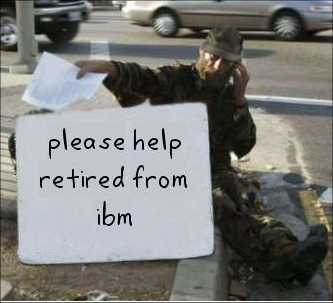Margo Bryerton, 56, a Verizon network service manager based in Syracuse, N.Y., had a rude awakening when she came to work on Dec. 5. That day, Verizon announced it was freezing its pension plan. As part of a move expected to save the company $3 billion over 10 years, the telecommunications giant announced that managerial workers would no longer earn pension benefits after June 30 this year.
The move to freeze pensions at solid, profitable companies like Verizon—and at others, including IBM, Sprint, Nextel, Tribune Corp., Lexmark, Alcoa and Russell Corp.—is the latest sign of pressure on traditional guaranteed pension plans. “It’s an entirely new phenomenon for healthy companies to freeze their pensions,” says Alicia Munnell, director of the Center for Retirement Research at Boston College.
Not only that, new regulatory and legislative changes now in the works could encourage companies to freeze their pensions—or get out of the pension business altogether
















I agree that it is crazy for companies to offer pensions and even health care in the current (and future) economic climate. The pension system was created during a time when people lived to an average age of 65-70, etc. There seems to be no easy way to have somebody work for 30 years , and then be supported by a defined benefit for, with luck, another 40 years.
That being said, Verizon should increase their employee salary by the exact amount Verizon was contributing to the plan. And the employees should accept the responsibility of saving.
Lou, how many financially responsible adults do you know? My litmus test of whether one is financially responsible or not is this: If you carry debt, you are irresponsible.
Steve, are you saving for retirement? do you carry credit card debt? a house? okay, a house is one acceptable form of good debt but do you really spend wisely? If you lost your job tomorrow, how long would you be able to survive before you go into the red?
I am a Canadian, and I saw this kind of thing coming years ago.
My attitude towards retirement is that it is 100% on me: I can’t count on any company pension, since the odds that any fund would both exist and be adequately funded when I need to draw on it are microscopic; and any government aid would be clawed back because I had the foresight to save for myself.
Anyone who depends on an external organization to support them in their retirement is risking a lot these days.
When these employees were hired, I’m sure, pension plans were discussed and used as an enticemen. It seems these companies may have trouble attracting talent in the future with these kinds of policies. We often hear how hard it is to find skilled employyees, hence the need to outsource.
All of this seems to me to be contradictory and will work against the long term viability of these companies.
“Lou, how many financially responsible adults do you know?”
Not many, but if we want to have a safety net for all, it should be discussed at the governmental, not corporate level.
IBM made a promise, “If you work for us for so many years we’ll provide a retirement.” Expecting to receive promised benefits is not the same as expecting a free hand out.
I agree with you, a promise is a promise. But there is no need to make the same promise to new employees. And there is no promise that your salary must keep going up, or even stay the same And lastly, a company can promise its way into bankruptcy, and then everybody loses.
The bottom line is that company’s benefit costs have increased much more than the base inflation rate. Assuming the same revenues are coming in, the extra money has to come from somewhere… in the short term it is a zero sum game.
And the answer can not always be “take the money out of profits”.
a house? okay, a house is one acceptable form of good debt but do you really spend wisely?
I always get a laugh out of how brain-washed we are into thinking that buying a house is “good”.
The “American Dream” of owning your own home. If I kept my current house for 30-years, I will have paid hundreds of thousands of dollars in interest. My $179k home would really cost me over $400k. Will it be worth over $400k in 30-years? Didn’t think so…
The game appears to be selling every few years – with my “profits” being used as a down-payment on another house – and therefore spending my whole life in debt. 🙁
Could I hear a an amen for the word “Tariffs”. Do we really care what happens in China or India? I can promise that they won’t care what happens here and we really don’t need them. What do we really get from either country that we can’t do better or do without?
We are the reason that the rich are dismantling this country piece by piece, either we think Nationalist or Globalist. If you’re a Globalist, then you’re a falling for same arguments made by the Robber Barons of the late 19th Century, and shame on you.